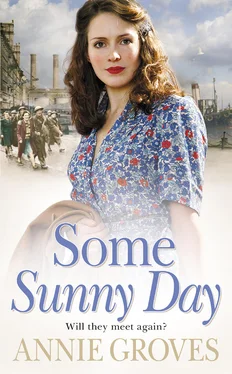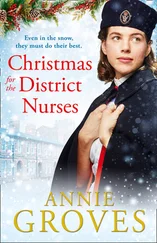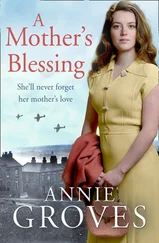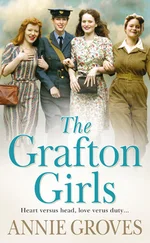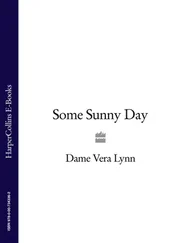Set against this backdrop, her own home seemed unwelcomingly drab. No carefully tended window boxes of flowers adorned her mother’s windowsills, the sound of singing and laughter never wafted out onto the air from open windows, no appetising smells of delicious pasta and soups wafted from her mother’s kitchen, unless Rosie herself was making them, which wasn’t very often because her father didn’t like ‘all that foreign muck’, so when she cooked for him Rosie stuck to the traditional English dishes.
Christine modelled herself on her favourite screen actresses, like Rita Hayworth, who were known for their glamour rather than their domestic virtues, rather than on a respected Italian mamma like la Nonna.
‘Rosie, run over to Currie Street and fetch us a fish supper from Pod’s, will yer?’ Rosie heard her mother demanding. She was still leaning on Aldo’s arm and had handed him her door key, intimating that she felt too weak to unlock the door herself. But not so weak that she didn’t want her supper, Rosie reflected wryly as she hurried off towards Podestra’s, hoping that the chip shop had escaped the vengeance of the rioters.
Podestra’s fish-and-chip shop was normally only a few minutes’ walk away, but tonight, with the glass and other debris littering the streets, it took Rosie over twice as long as usual to pick her way through it in the ominous silence that hung as heavily on the air as the dust from the destruction.
Sickeningly, through one of the windows that had been broken in she could see where furniture had been smashed to pieces, the horsehair spilling out of a sofa through the deep knife cuts slashed into it, whilst a child’s hobbyhorse lay broken on the floor beside it. Despite the warmth of the evening, Rosie shivered, wondering what had happened to the family whose home it was, and praying that they were unhurt.
Although Rosie’s mother was a Catholic, her father was staunchly Church of England, which was yet another bone of contention between her parents. Rosie had been christened as a Catholic at her mother’s insistence, but Christine was not a devout churchgoer, and sometimes Rosie suspected that her mother had only insisted on Rosie becoming Catholic to annoy Rosie’s father. It had been pious Maria who had encouraged Rosie to go to church with Bella, and who had provided the necessary white dress for Rosie’s confirmation. Rosie was obedient to the dictates of her religion and attended church every week, as well as making her confession. Her faith was a simple but strong belief in God, although war and the horrible things it was bringing sometimes tested that faith. However, because her father was of a different religion, Rosie stood slightly outside the traditional observances in the Italian community, where many of the older women went to church every day – sometimes more than once. Rosie did say her prayers every night, though, always asking God to protect those who were in peril, especially her father.
She had almost reached the chippie when three young Italians, still just boys, walked past her going in the opposite direction. Two of them were supporting the third between them, as he struggled to walk. One of the two had obviously received a head wound, and dried blood was visible on the bandage tied around it.
Rosie shivered. What was happening to people? To the city she loved? Those boys had grown up here in Liverpool. Suddenly she longed desperately for her father, with his slow reasoned way of speaking and his gentle strength. He might not be a handsome man like Aldo, nor possess the musical talent and hospitable warmth of Carlo, who drew others towards him so easily, but her father had his own special strength and Rosie loved him with a fiercely protective intensity. She hated it when her mother snapped at him and taunted him because of the limp he had developed as a young boy, when he had fallen downstairs and broken his leg so badly that he was left with it slightly shorter than its fellow, and which made it uncomfortable for him to take her dancing.
‘If you’re mekin’ for Pod’s I shouldn’t bother, it’s closed,’ a woman called out to Rosie from the other side of the street, showing her the empty bowl she had obviously intended to have filled with pease pudding.
Thanking her, Rosie regretted her own decision earlier not to stop to get herself something to eat. The larder would almost certainly be bare.
The summer light was beginning to fade from the sky, which was now streaked the colour of blood. Blackout curtains were going up in those windows that hadn’t been broken, and outside those that were, small groups of men were gathering to examine the damage and make temporary repairs. At least it was summer and rain was unlikely to hinder their efforts. The look on the victims’ faces made Rosie feel shamed of her own nationality. She wanted to go to the Italians and assure them that not everyone felt the same way as those who had rioted against them.
When she got home she found her mother in the parlour, sitting on the sofa with her feet up on a worn leather pouffe, smoking a cigarette, her hair already rolled up in rag curlers, and a scarf tied round them turban style.
‘Where’s us supper?’ Christine demanded irritably. Her lipstick had bled into the lines around her mouth, Rosie noticed absently. And there was a button unfastened on her blouse.
‘Pod’s was closed.’
‘So why the hell didn’t you go somewhere else? It’s not as though there ain’t enough ruddy chippies around here,’ Christine complained acidly.
‘Yes, and they’re all Italian-owned,’ Rosie reminded her, ashamed that her mother was only thinking of her stomach at a time like this.
‘Aye, well, they’ve only got themselves to blame,’ Christine told her. ‘That Sofia thinks she’s bin so bloody clever getting her Carlo in with that Fascist lot and her Bella enrolled at one of them language schools what they run, but you mark my words, she’ll be regretting it now.’
There had been a lot of talk in the area whilst Rosie was growing up about Mussolini and his effect on Italian politics. Being a passionate race, Liverpool’s Italian community talked as intensely and fiercely about ‘Fascismo’ as they did about everything else. Rosie knew from sitting in the Grenellis’ kitchen whilst these often heated discussions were going on that to the older generation of immigrants, Mussolini’s desire to treat them as though they were still ‘Italians’, albeit living away from their homeland, meant so much to them emotionally. They saw what Mussolini was doing as a means of uniting them, of giving them respect and status, and of preserving their Italian heritage. They couldn’t see, as their younger British-born children could, the dangers of Fascism.
Hadn’t Mussolini shown respect for their patriotism? the older men argued. Hadn’t he encouraged ‘his’ people living outside Italy to set up social clubs where the men could meet to talk about their homeland and to share their sense of what it meant to be Italian? Hadn’t their mother country sent delegations to talk to them and, thanks to them, hadn’t an Italian school been opened in Liverpool so that their children could learn their true mother tongue? If some of their non-Italian neighbours in their adopted country chose to resent what Mussolini was doing for his people, then that was their problem. For themselves, they were now doubly proud to be Italian and to know that their mother country valued them and recognised them as such.
Stubbornly these often elderly men believed that Fascism was more about an upsurge of patriotism and a love for their homeland, than about politics, which they did not really understand or want to accept.
Many of the younger men, on the other hand, especially those who worked alongside non-Italians, were concerned that in clinging so determinedly to the mother country their fathers and uncles and grandfathers were ignoring the realities of just how antagonistic towards Mussolini the English people and the British Government were, and this led to heated arguments within families when they gathered together. Rosie had seen the way Maria shook her head when they took place in her own kitchen. Sofia was fiercely proud of her Italian heritage, and determined to encourage her husband and her daughter to be equally patriotic, so easy-going Carlo was bullied into joining their local Fasci club, and Bella was sent to the Italian school in the evening for Italian lessons, even though she complained that she already spoke Italian perfectly well.
Читать дальше
